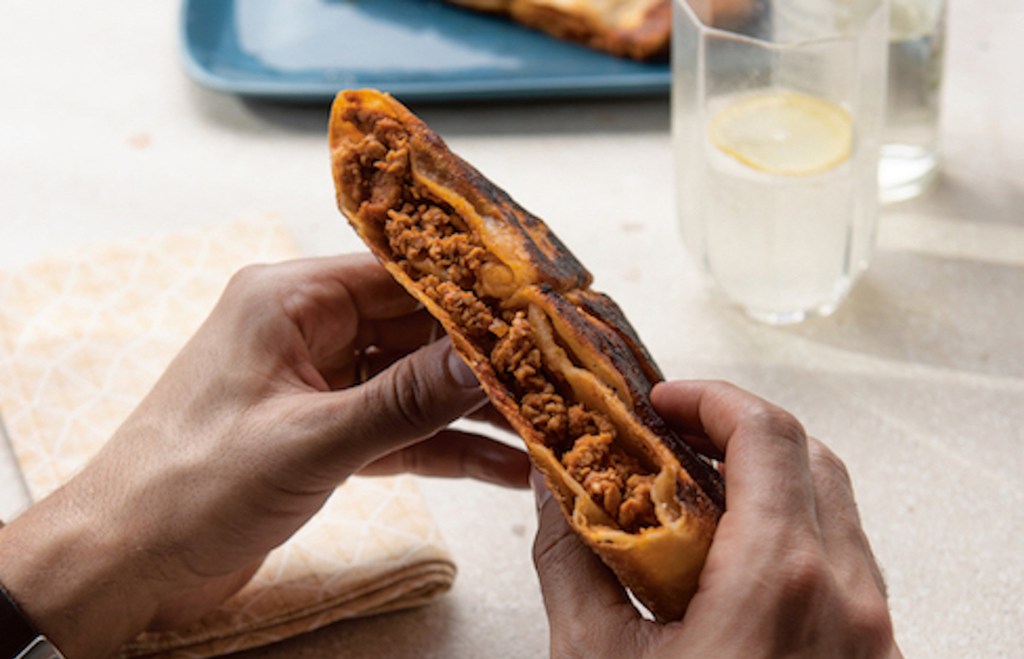In the last few years, barbecue cooking has had a massive resurgence in the UK. It’s out with semi-cooked sausages on bank holiday weekends and in with hickory vs. mesquite, smoking ribs in DIY filing cabinets, planning pilgrimages to Anthony Bourdain’s Barbecue Triangle, and … smoking the turkey at Christmas?
It’s not as crazy as it sounds. Many of the UK’s top chefs favour grilling the festive bird over roasting, due to the added flavour that comes from cooking with wood. As everyone knows, turkey is often dry and bland (“Another slice of plasterboard, Grandma?”), but barbecuing it slow and low with a rich marinade guarantees succulent, flavourful meat.
Videos by VICE
Richard Bainbridge, chef proprietor of modern British restaurant Benedicts in Norwich, says that a continual basting of the turkey is the key to moisture retention. You should spoon juices over the bird before barbecuing or, better still, a homemade marinade.
“A barbecue is more ideal than an oven because you can put the bird in and leave it to its own devises, leaving your oven free for finishing off the roasties and the vegetables.”
“Once mastered, a barbecue is more ideal than an oven because you can put the bird in and leave it to its own devises, leaving your oven free for finishing off the roasties and the vegetables,” Bainbridge adds.
This may be so but Oliver Gladwin of South London brasserie Nutbourne Restaurant warns that there are some questions you must ask before barbecuing a turkey—or any meat, for that matter.
“I am a huge fan of open-fired cookery, sun, rain, or shine, and turkey cooked on a wood fired barbecue gives the skin and flesh a smoky and caramelised flavour,” he says. “But when any ingredient is prepared to be barbecued, you should take it through a thorough thought process. What additions will the ingredient benefit from: marinating, spiced dry curing, aromatic brining, ageing and ripening, or a combination of these? And how are you going to cook it? Over fruit wood, hard wood, hot smoke chipping, cold smoking, spit roasting, brick on a chick, or beer can up the bottom, or again, a combination?”
RECIPE: Spatchcock Turkey
For first-time turkey barbecuers, Gladwin swears by spatchcocking the bird—something you can ask your butcher to do for you when you pre-order the turkey. He then advises placing the entire bird in a bucket of “aromatic Christmas” brine (a mix of cinnamon, allspice, and orange) and leaving for four days before barbecuing over dried fruit tree chips, like apple or vine, for 40 minutes, basting throughout.

The barbecuing itself needn’t involve a caveman-style fire pit or a disposable foil tray. There are many modern grilling alternatives, from the charcoal-fuelled Josper Grill to the Big Green Egg, the distinctive dome-shaped barbecue that Duncan Baker, head butcher at London butchers Parson’s Nose, says a lot of his customers are buying and using both in and outside the house. Chef Tom Griffiths of London nose-to-tail restaurant Flank is also a Big Green enthusiast. On one side of his kitchen, he has a classic Robata grill and, on the other, not just one, but three Big Green Eggs.
Of course, it’s not just about the gear. Chef Ed Baillieu of London chicken pop-up Schmaltz believes that shifting our collective memory of dry, sawdust-textured turkey is motivation enough for any home cook during the festive season, whatever their equipment or experience level. He thinks everyone should give barbecued Christmas turkey a go.
“What barbecuing offers is the opportunity to cook low and slow over a longer period of time, reducing moisture loss while increasing flavour and imparting smoky, umami notes,” Baillieu says. “People usually rush the turkey but with the right amount of research and care, barbecuing is really quite simple. When else do you get to play with a bird this size? It’s thrilling.”




